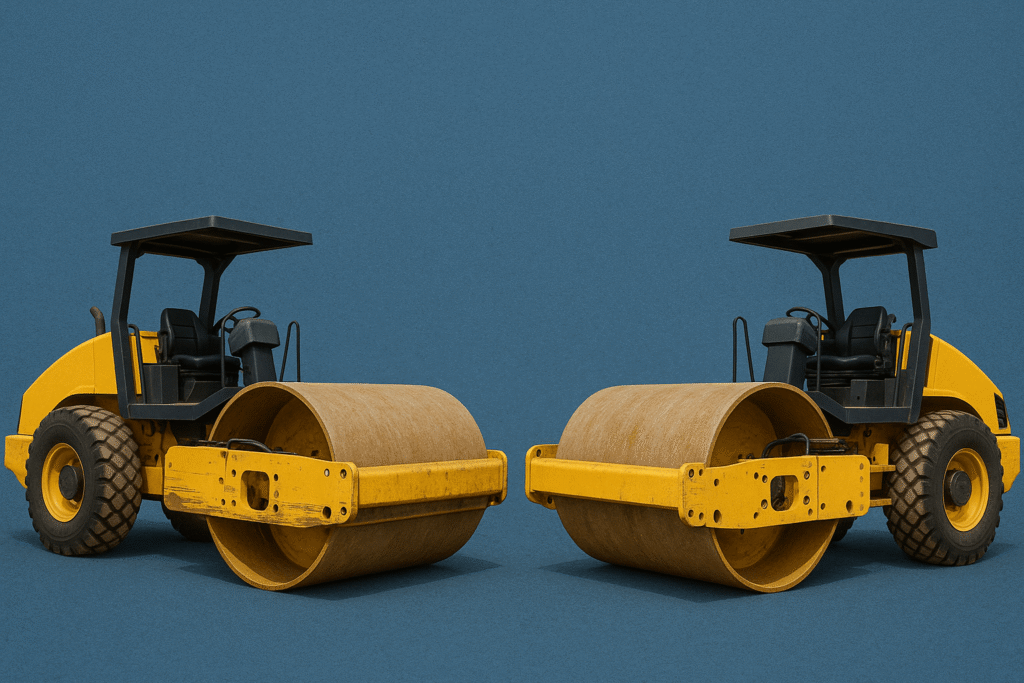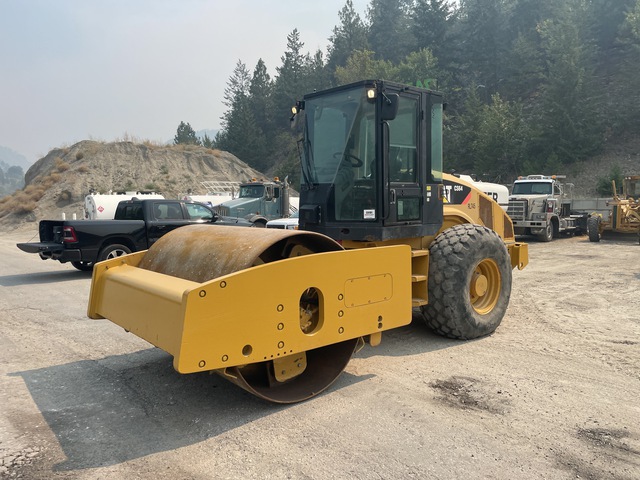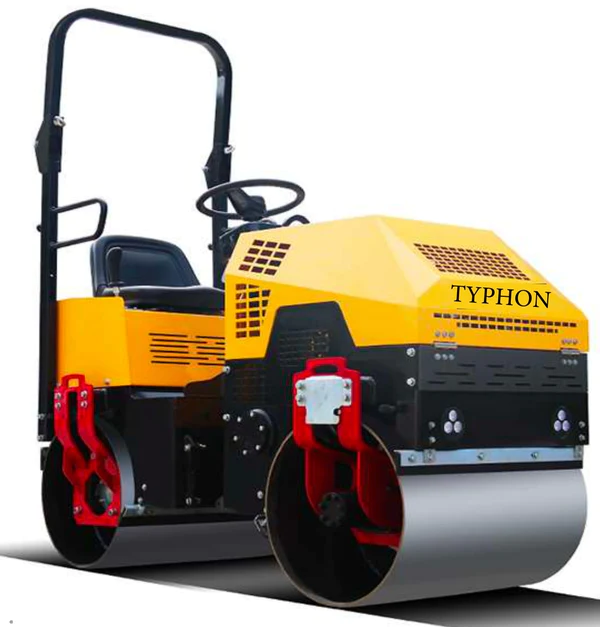Roller compactor drives whether in construction of roads, restoration of area, or building of facilities, matter a lot in getting surfaces that are not only neat but also lasting and stable. For instance, a local contractor, building firms, or even a municipality, you will have to make the hard decision: Is it better to rent a roller compactor than to buy one?
The outcome of this choice will affect your finances in the long run. You will not only spend more money on the initial payment, but also on the energy used, maintenance, and so on.
Deep-dive into practical side of the issue we shall list and weigh pros and cons of a rent a roller compactor vs buying, draw cost relations, outline industry use cases, and finally map out which alternative will save you more in the long haul.
Understanding the Role of a Roller Compactor
Before getting into the money issue, it is necessary to clarify the function of a roller compactor and the reasons why it is the first choice in any construction project. Mobile/Static/Integrated Roller compactor are the machines which are tailor-made to compact soil, gravel, asphalt, and other materials to make, for example, the base of cars parking lots, children’s pitch, and gigantic infrastructure projects firm, leveled and durable.
- Versatility: Smooth drum rollers, padfoot rollers, pneumatic rollers, and double drum vibratory rollers are various types of roller compactors, and are different in features/details.
- Application: Roller compactors are employed in the building of a variety of facilities, starting from small homes’ driveways and ending up with the big highways.
- Longevity: The success of a project is in most cases partially dependent on how well the compaction process is carried out, hence such machines are indispensable.
Given that mettle, the question is whether a rental or a purchase will be more advantageous for your needs.
Initial Costs: Buy or Rent a Roller Compactor
The cash commitment upfront is the main aspect distinguishing rental from purchasing.
- Purchasing: The cost of a roller compactor can range from $30,000 to $200,000 for a new one, taking into account the size, model, and features.
- Renting: Generally, the rental price varies from 250$ to 700$ per day, or from 2,000$ to 4,000$ per month, depending on the type of the machine and the rental company’s policies.
- Budget Flexibility: A rent accommodates the huge initial payment in your budget while buying transfers that amount into capital but also brings the benefits of ownership.
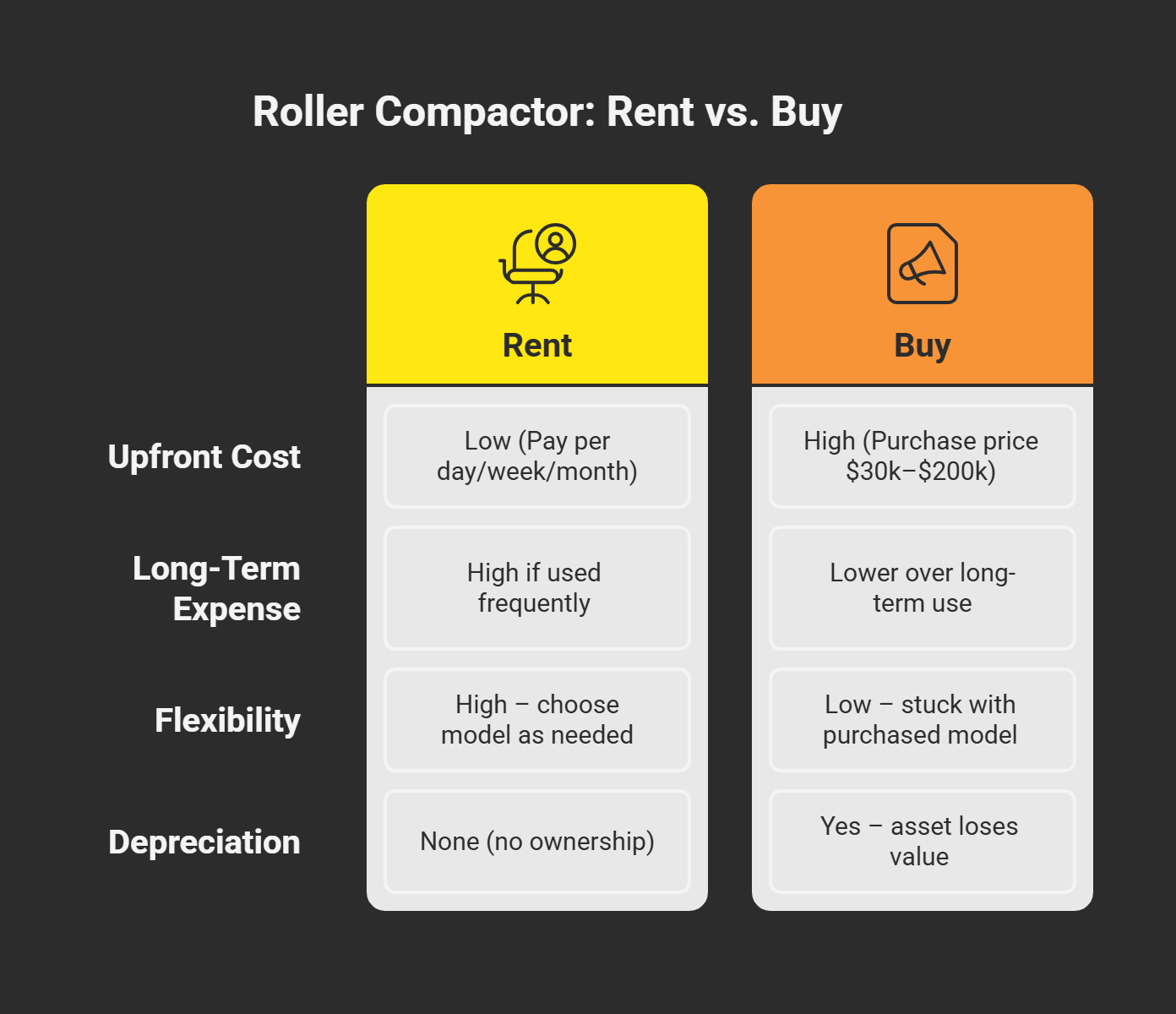
Cost Comparison Table
| Factor | Rent a Roller Compactor | Buy a Roller Compactor |
| Upfront Cost | Low (Pay per day/week/month) | High (Purchase price $30k–$200k) |
| Long-Term Expense | High if used frequently | Lower over long-term use |
| Flexibility | High – choose model as needed | Low – stuck with purchased model |
| Depreciation | None (no ownership) | Yes – asset loses value |
Maintenance and Repair Considerations
One of the less apparent costs in the ownership of heavy machinery is the roller compactor maintenance and repair.
- Renting Advantage: Most of the time a rental company bears not only the repair but also the service and maintenance costs thus a customer is assured of no long interruptions and no unexpected expenses.
- Buying Disadvantage: The owners are wholly responsible for regular maintenance, parts replacement, and breakdown repairs, which can lead to a considerable increase in the annual budget.
- Downtime Impact: In the event a purchased roller breaks down, there is a high risk of project hold-ups, unless there are other machines to take over.
Key Maintenance Costs for Roller Compactors
- Oil change, tuning, and check-up every 250–500 working hours.
- Hydraulic system maintenance, troubleshooting and replacement when necessary.
- On the occasion of wear, drum change and repair.
When choosing between rental and ownership, don’t focus solely on maintenance costs. Think about the time and work that may get affected because of repairs.
Project Duration and Frequency of Use
The length and frequency of use can mainly influence the manager’s decision to rent or buy.
- Short-Term Projects: It is better to rent if your company rarely needs a roller compactor just for a few specific jobs.
- Frequent Use: Buying is the right decision for companies that have constant roadworks or big infrastructure projects.
- Seasonal Demand: In places where construction activities decrease during winter, it is better to rent so that you will not have to pay for the equipment that will just be sitting there unused.
Consider This:
- Renting is the best option if you are a less than 3-month-per-year user of the machine.
- Buying is beneficial if you really need the roller compactor for 6–12 months annually.
- Such projects volumes as a rule of highway construction serve as a great occasion for just owning taking place for a long time.
Depreciation and Resale Value
- Besides that, the manufacturer will be of concern about the resale value of the machine.
- In a case of roller compactor, if the maintenance is done properly, the reselling price will be 30-50% of the new price after some years of use.
- Renting does not offer any ownership in return. You make a delivery of money without receiving any capital in return.
Geographical Variability: Used compaction equipment is sometimes to be found in steady demand, which would undoubtedly help get back some of the investment.
Buying might in such a way pay back at the end of ownership which offsets some of the upfront costs.
Storage, Insurance, and Logistics
The owner has the right to enjoy the advantages but should be ready to accept the negatives of storage, insurance, and logistics.
Not only are roller compactors huge but they also have to be kept in safe and weather-protected storage facilities.
- Owners are in charge of taking care of all the insurance needed for the equipment to cover for cases of theft, accidents, and damages.
- Contractors should be in charge of managing the process of moving the roller compactor to the location of the job through proper logistics.
On the contrary, rental companies often provide pickup and delivery services as part of their packages, which makes the logistics quite easy for contractors who do not have transportation fleets. From a financial strategy perspective, the decision to go for a rental or purchase directly affects your business’s cash flow.
- Renting: Maintains operating capital, so the business can put money in different areas such as recruiting, promotion, or extending the number of projects.
- Buying: It will use up the capital but in return, you will be able to increase your profit margins on projects that are going to last for a long period.
- Tax Benefits: The machinery purchase may be subjected to the deduction of depreciation, while the rental fees can simply be categorized as operating expenses and be written off.
Should your firm be in its early-stage, renting will still be a more attractive option because of the flexibility it offers. On the other hand, for mature businesses with stable contracts, the purchase of assets will lead to a reduction in costs over the years.
Which Option Saves More in the Long Run?
So, what is really the cheaper way in the long run: Buy or rent a roller compactor?
Rent a Roller Compactor Saves More If:
- The machine is only required for short-term or irregular projects with you.
- Company is rising and you want to check out different kinds of machinery before deciding on one.
- Besides, you do not want the trouble of maintenance and storage gaining control of you.
Buying Saves More If:
- Hypothetically, let’s say you are a frequent user of the machine and your time is long throughout the year.
- You want to own and maybe resell the equipment in the future if needed.
- Moreover, you are okay with the fact that your operating costs will be stable for the long-term but higher at first instead of facing rental fees that are variable.
The truth is that buying a roller compactor saves more in the long run for high-frequency users eventually. On the other side, renting would be the most financially reasonable option for the occasional contractors or those of small-scale projects.
Frequently Asked Questions Buy or Rent a Roller Compactor
Is it better to buy or rent a roller compactor for a one-time project?
In case the equipment is only required for a single project, it would be much more cost-efficient to rent it rather than buying.
How much does it cost to rent a roller compactor in the USA?
On average, rental of a roller compactor can be from $250 to $700 per day and $2,000 to $4,000 per month depending on the type.
How long does a roller compactor last if I buy one?
With effective maintenance, a roller compactor can be kept in use for 10–15 years or more, depending on how often it is used.
What are the tax benefits of buying vs rent a roller compactor?
Acquisition enables depreciation deductions to the owner, while the cost of rentals is usually deducted as operating expenses.
Does renting include maintenance?
Absolutely, in the majority of cases, the rental companies cover maintenance, servicing and sometimes even the transportation cost in their agreements.
Can I resell my roller compactor if I buy one?
Yes, the used compactors can be resold most of the time for 30 to 50 percent of the initial purchase price, depending on their condition.
Which option is better for small contractors?
A small contractor who has limited, seasonal or irregular projects will be more advantageous if he chooses the rental option over buying.
Final Choice Buy or Rent a Roller Compactor
Bisecting the rent a roller compactor vs buying depends on your project needs, budget, and business growth strategy. Renting provides flexibility and low upfront costs, making it suitable for short-term or occasional projects. In contrast, buying will allow you long-term cost savings, asset ownership, and higher ROI for businesses that are frequently dependent on roller compactors.
By properly evaluating cost, maintenance, usage frequency, and financial goals, contractors will be able to decide on the option that will result in the maximum profit and high efficiency in the long run.

